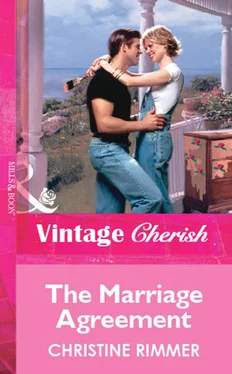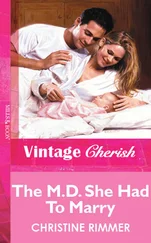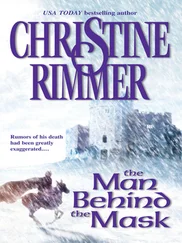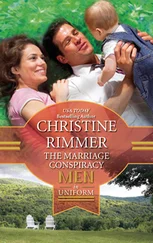It occurred to him that he wasn’t really even needed anymore at the company he had created. He’d put together a system that worked and now it could pretty much run without him. Soon it would be time to focus his energy on expanding. Or maybe to get into something else altogether.
He went back to Blake’s room, where lunch was being served. He sat in the chair and watched his father pick at his meal, tuning out the gibes and taunts, pleased to find that he was getting pretty good at not listening to things he didn’t need to hear.
As a child and a badly troubled teenager, he used to practice tuning out the old man. He never got a chance to get very good at it back then, though. At that time Blake hadn’t been confined to a bed. And if Marsh tried not listening to his harangues, Blake had no compunction about using whatever was handy—his fists, his belt, a baseball bat—to get his rebellious son’s undivided attention.
By one Marsh was ready for lunch himself. He considered giving the cafeteria a try, but then decided he’d just as soon get out of the hospital for a while. He drove down Porter, crossing Gray and Main and continuing on toward the university. He found a certain landmark restaurant he remembered, a place that was a little dark inside, but really nice out on the patio under the clusters of red-white-and-blue Cinzano umbrellas.
The lunch rush seemed to be winding down, so he didn’t have much difficulty getting a table to himself. The waitress settled him beneath an umbrella with an iced tea, a basket of chips and a menu. He crunched on the chips and considered his choices, thinking that later in the afternoon he’d start looking for that live-in nurse his father would be needing.
He glanced up from the menu to signal the waitress—and saw that he was being watched. By some character a few tables away, a guy with a broad, ruddy face and a salesman’s smile.
The character squinted. “Marsh? Marsh Bravo?”
Suddenly the face was familiar. Take away forty pounds and add long hair and—“Bob Avery.”
Bob nodded at the three other men at his table. “Be right back.” He got up and strode toward Marsh. “I don’t believe it.”
Marsh stood. “It’s been a long time.” They shook hands. “You’re looking good.”
Bob laughed. “I’m lookin’ fat. But you. Hey. Doing all right, huh?”
“Getting by.”
“What did you get into?”
Marsh told him. “What about you?”
“What do you think? Insurance.”
“Like your dad.”
“That’s right. I went in with him. Got my name on the door, two assistants and four clerks. He’ll be retiring in a few years, then I’ll be on my own.”
“Sounds good.”
“It’s a living—and I married Steffie.” Marsh remembered. Bob and Stefanie Sommers had been an item Marsh’s senior year.
Marsh asked the next logical question. “Kids?”
“Two. A boy and a girl.”
“What do you know? A lot can happen in ten years.”
“Ain’t that the truth.” Bob was looking at him a little oddly now, it seemed to Marsh. “So,” he said, and coughed into his hand. “You married?”
“No. Still single.”
“Well. Ah. Have you stopped in to see Tory?” Something wasn’t right, something in Bob’s expression, in the hesitant, probing sound of his voice.
Marsh said in a flat tone, “I saw her briefly, last night.”
Bob’s rather small eyes got larger and his face got redder. “You did. Well. Great. That’s, uh, some little girl you got there.”
Marsh frowned. What was Bob getting at? Tory was far from little, and Marsh didn’t “have” her. Bob’s remark made no sense. “What was that?”
Bob gulped. Marsh watched his Adam’s apple bounce up and then slide down. He glanced at his watch. “Wow. Look at the time. Gotta go. It has been great seein’ you again. You take care of yourself, now.”
“Sure,” said Marsh, still wondering what the hell was going on. “You, too. My best to Steffie.”
Bob hurried back to his own table, but only paused there long enough to grab his check and announce, a little too loudly, that he had to get back to the office.
Marsh sank to his chair again. The waitress came by. He ordered and he ate. He was back at the hospital by a little after two, stopping in at the nurses’ desk to ask for a few referrals for home care. Then he went to his father’s room.
Blake started right in on him, razzing him about Tory, about the damn “surprise” she was supposedly keeping from him. And now, after the way Bob Avery had behaved, Marsh was beginning to wonder if there could be more to this thing about Tory than a mean old man’s crazy head games.
“You go on,” said Blake for about the fifteenth time that day. “Talk to her again. And this time don’t let her get away from you until she tells you the damn truth.”
About then, Marsh could easily have grabbed the old man around his scrawny throat and squeezed until the wolfish eyes popped right out of their sockets, until Blake gave in and blurted out the big secret, whatever the hell the big secret was.
But somehow he restrained himself. Mostly because he knew that strangling his father would get him nowhere. Blake would die with that ugly knowing grin on his wrinkled face.
Marsh said, “You know, Dad. You’re right. I’m going to see her. Now.”
“You be sure to tell her I said hi.”
He drove to her flower shop, figuring she’d have to be there at that time of day. It wasn’t difficult at all to find. He thought it looked charming, the windows sparkling clean, the displays attractive and eye-catching. He almost parked and went in.
But he didn’t. By then he’d had a little time to reconsider, time to think some more about the way she’d run out on him last night. After that, he doubted she’d be too thrilled to see him if he dared to drop in on her at her workplace.
Better to wait, now he thought about it. Wait until she closed the shop for the day. Call her at home, as he’d done last night.
How early could he call and reach her?
Well, how late did the shop stay open? He could see the hours printed on the door. But he couldn’t quite make them out from the street. And he didn’t dare get any closer. She might look out and see him.
Hell. This was ridiculous. He felt like a damn stalker—probably because he was behaving like one.
He drove on by the shop, turned left at the next intersection and then right on Main. Before long he was passing the statue of the Union soldier again. And this time, when he got to the street that would take him by Tory’s house, he swung the wheel to the right and turned into her neighborhood.
The streets near her house looked much the same as they had ten years ago: solid, comfortable homes, mostly of brick, lots of oaks and sweet gum trees and twisted evergreen yaupon hollies. Some of the mailboxes were out at the street, clematis vines thick with star-shaped purple flowers twining over them.
There were children, a number of them, strolling along on either side of the street, wearing backpacks and swinging lunch boxes, probably just getting out of the elementary school a few blocks away. They looked happy, those kids. Contented with the world and with their place in it. No doubt they had the kind of life he’d always envied when he was growing up. They were going home to the nice brick houses, where they’d do their homework, have their friends over, sit down to dinner at six—dinner cooked by a trim, pretty mom who smiled a lot and didn’t have to work her fingers to the bone just to make it from one day to the next.
He spotted it: Tory’s house. A block and a half ahead, on the corner, with that big sweep of lawn front and side. He used to cut that lawn, and the lawn of the house next door to it—Mrs. Pickett’s house—during those summers he worked for that gardening service. He’d cut a lot of lawns in this neighborhood, in those two summers, his sixteenth and seventeenth year.
Читать дальше












